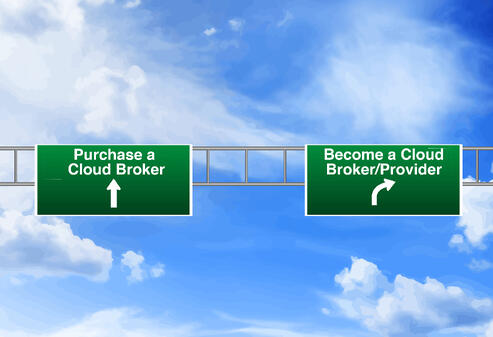The IT world is abuzz with the term “Cloud Broker”. Seemingly every vendor wants your enterprise to buy “their Cloud Broker”. The fact that they are so anxious to sell a Cloud Broker is in fact proof they don’t fully understand the meaning of the term.

Today’s enterprise IT organizations are struggling to remain in control of internal and external IT resources being consumed by their business. These IT Organizations face a triple challenge in that they must:
- For security and accountability reasons, gain control of IT resources being provisioned and consumed by the Lines of Business, regardless of those resources being delivered from an internal community cloud, or public clouds like AWS, Verizon/Terremark or Rackspace.
- Be more oriented towards the Lines of Business in the enterprise. Hand waving in response to direct questions like; ‘What is the cost associated with IT support for our engineering group?’ Or, ‘How much are we spending monthly on that customer service application for finance?’ is no longer acceptable. IT Organizations have to deliver real answers.
- Be orders of magnitude faster and more responsive in providing access to internal IT resources. The speed and agility required to keep Lines of Business happy with their IT groups is well beyond the capabilities of most IT shops, and requires a level of IT automation found in a minority of organizations today.
Addressing all of these challenges requires that IT organizations implement a solution that manages IT resources in a unified way, regardless of whether the resources are deployed internally, or externally in one or more public clouds. The managed resources need to be controlled and reported on in a business context-sensitive way. Finally the solution needs to allow resources to be provisioned rapidly (and in a self service manner) and effectively retired in an accountable and orderly fashion, regardless of location or type of environment in which they reside.
When an IT organization addresses these challenges and functions in this manner, the IT organization itself has become both a Cloud Broker, as well as a provider for its customers. Merely purchasing a Cloud Broker alone ignores the significant role IT Organizations must play in the governance of their environments, and thus, Enterprise IT risks irrelevance if they merely purchase a Cloud Broker vs. becoming a broker/provider.
